Elections and Results
Elections and Results
By Gökalp Erbaş
“If the opposition is suppressed and intimidated through police methods, and PAS and its allies secure high vote shares in the elections, an inevitable outcome will be approaching. In this scenario, Russia will eventually be provoked from this front.”
I concluded my Moldova analysis in July with these lines, and now, three months later, Moldova seems closer to this scenario than ever before. The Sandu government saw this clear equation as everyone else did, and they devoted the last period of their election campaign to their activities on these two pillars. When you think of “election campaigning” in Moldova under the Sandu regime, the first thing that should come to mind is not posters, rallies or political programs, but an escalating campaign of arrests, censorship, sabotage and media operations. The government has combined the accusation of Russian espionage, which has become more useful since the Ukraine-Russia war, with corruption, an irrefutable fact of life in the country, and has stepped up its intimidation of the opposition with the instrument of the judiciary. Despite all this, the polls showed no guaranteed parliamentary majority for PAS. For Europe, Sandu’s rule in Moldova was too important to “risk it for democracy”. And election day came.
What happened during the election process?
You go to the polls to vote for the party you support and cast your vote. On the way home, you find out that there is no such party! This is what Moldovan voters witnessed during these elections. The investigation into the Moldova Mare party, which would have resulted in its disqualification from the elections, was extended until the election day. The party appeared on the ballot papers. During the elections, it was announced that the party was banned, and the votes would be invalidated. It is hard to say that this was just a coincidence of the duration of the trial. Voters in Transnistria are known to vote overwhelmingly for opposition parties. Three days before the election, the government announced that it was removing the polling stations in Transnistria and moving them to this side of the river. The locations of the new polling stations were also left in uncertainty for a while. Ironically, one of the bridges connecting one side of the river to the other was closed for security reasons, while the remaining 7 were “under repair” on the day of the elections and long queues formed. As soon as the elections were over, construction work on the bridges ended.
The game-changing effect of the Moldovan diaspora in elections is a well-known fact. In these elections, the fate was again changed by the voters of the ruling party who were taken to the polling stations almost at their feet. For Moldovan citizens living in Russia, numbering more than 300 thousand, polling stations were opened only in two locations in Moscow. Meanwhile, in European cities, where pro-government voters usually live, dozens of polling stations were opened in different cities. Western-backed NGOs both at home and abroad also facilitated voting in areas where the ruling electorate is strong. In a region like Gagauzia, where the government could only get 3.19% of the vote, “technical” and “electronic” malfunctions and long queues were again encountered.
Even the “international” observer missions to the Moldovan elections, whose main task was to verify Moldova’s commitment to democracy, raised objections. Chris Said, head of the PACE delegation, said: “Voters had a broad choice, but inclusiveness suffered: “Some may have been discouraged by the last-minute deregistration of candidates and the constant obstacles faced by voters from the left bank of the Dniester. We call on all institutions to protect pluralism and equal participation so that every citizen’s voice is heard in future elections.”
As Paula Cardoso of the OSCE delegation noted: “While there were real political alternatives for voters to choose from, some of the new eligibility requirements for candidates were overly burdensome and vague. At the same time, the decision to declare two parties ineligible in the final days of the campaign limited their right to an effective remedy. Electoral disputes were generally handled efficiently, but some court decisions offered different interpretations of the new legislation affecting party eligibility.”
Of course, the 415 observers from 50 countries had not a word to say about opposition leaders and journalists imprisoned and subjected to endless trials, and dozens of channels, newspapers and TV channels censored. The security of polling stations abroad was a complete mystery. Most recently, as Pavel Durov, the owner of Telegram, stated, Moldovan intelligence and French intelligence asked Durov to shut down opposition media channels in Moldova, and although some of the channels were shut down, Durov refused to shut down only opposition channels that did not contradict Telegram rules, according to his own statement. In other words, Europe did its best to help Sandu win with all its intelligence and civil society tools. As a result, PAS secured a parliamentary majority.
What do the election results show?
In the elections, which were completed with a 52.2% voter turnout rate, according to the distribution of the votes within the country, the total votes of the opposition exceeded the government’s 44% with 49%. When foreign polling stations were included, the government’s share of the vote rose to 50.2% and the government won the election. The ruling PAS party took 55 of the 101 seats in the parliament (two PAS MPs decided to continue as independents after the elections), while opposition MPs took the rest. Only 4109 of the 278,000 votes cast abroad were cast by Moldovan citizens in Russia. The rest were from other countries such as Türkiye, China and India, but the vast majority were from Europe, the US and Canada. In other words, PAS received an average of 80% of the vote.
The election results were not exactly as the polls had predicted. Almost none of the dozens of polls showed that PAS would win a majority on its own. But it managed to retain its majority, even though its parliamentary seats were reduced. The strongest opposition bloc, the Socialist & Communist bloc, also lost seats and was dispersed among the other opposition parties. The election can be summarized as follows. The Socialist-Communist bloc has retained its voters, who are traditionally tied to Russia and maintain ideological, familial and linguistic ties, but has problems diversifying its voters. The Alternative Bloc, led by Chisinau Mayor Ceban and Stoianoglo, a candidate in the previous presidential elections, received around 8 percent of the vote. The votes of this bloc, which favors EU accession, and other opposition parties that have chosen not to take as strong anti-EU positions as the Socialist & Communist alliance, show that the domestic opposition is not as staunchly pro-Russian as the government claims. However, this fragmentation of the opposition also creates disadvantages for opposing a government backed by Western capital, NGO power, the judiciary, the national press and the European media. For example, opposition parties did not participate as a whole in the protests immediately after the elections questioning the legitimacy of the election. This strengthened the narrative of authority, which claimed that the protests and opposition to the government consisted exclusively of pro-Russians.
The West saved Moldova from Russia. Who will now save Moldova from the West?
“Europe has openly admitted its intervention, referring to ‘the defense of Moldova against Russia’. But who will save Moldova from Europe, which is used to live at someone else’s expense and fighting with someone else’s hands?”.
It is important to note these words of banned Victory Bloc leader Ilan Shor. Moldova’s future will now be more closely linked to the future of Europe.
But the government has not solved anything other than consolidating EU interests by winning the election. The economic deadlock in particular is perhaps more entrenched than ever. “For two consecutive quarters, the current account deficit of the balance of payments has exceeded 1 billion USD, while its average value over the past 5 years was 410 million USD. It amounted to 2.026 billion USD in the first half of 2025 and increased by 76% compared to the first half of 2024,” reported economist Volodymyr Holovatiuk. In addition, the share of industrial production in GDP has been falling for the last three years. On October 3, a forum was even organized with the support of the German and Swiss governments to discuss this destruction of industry and its future. In the words of Sergiu Harea, the president of the Chamber of Commerce and Industry, “in just 3 years investment in industrial complexes has fallen from 697 million lei to 142 million lei”. Although the decline in wine, a major export item, seems to have reversed, the 2019 figures have not even been reached yet. Inflation is eroding the incomes of many, including pensioners and rural residents. According to the National Bureau of Statistics, about 70 percent of the monthly salaries of people aged 60 and over, who make up a quarter of the country’s population, go on housing and food alone. Moldova’s elections passed under the hysteria of an EU-Russia war. Moldovans are still burdened with the spiral of mounting domestic and foreign debt, the energy crisis that has been swept under the rug, the cost of living, the pitiful situation of pensioners, the displacement of the working population from production through unemployment and migration.
As the pro-war elites of the US and Europe, and the war capital that stands to gain greatly from it, feel the pressure, they may use Moldova’s desire for EU membership to force it to make “bolder” moves against Russia. These risks were also reflected in intelligence reports. The growing military and intelligence ties between France and Moldova are also an important signal of Moldova’s Ukrainianization process, which we have already mentioned. The 2024 presidential and 2025 parliamentary elections were potential threats to these steps, which now seem to have been bypassed. So, Sandu and his team will now be able to move more freely in this direction.







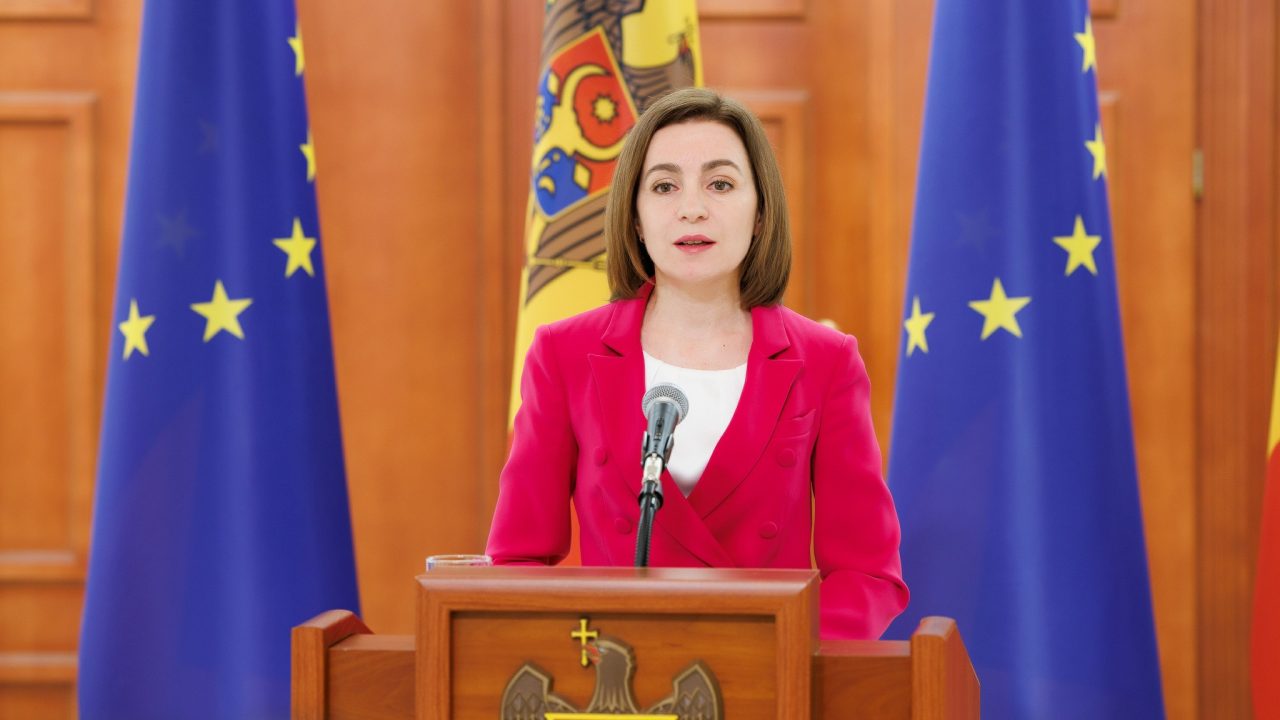
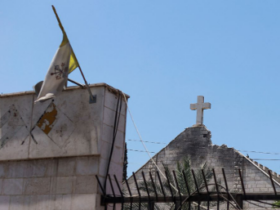
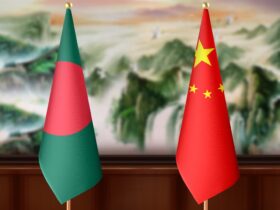
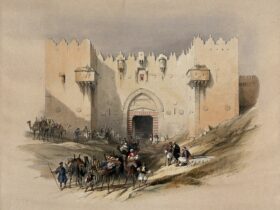
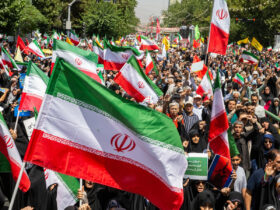
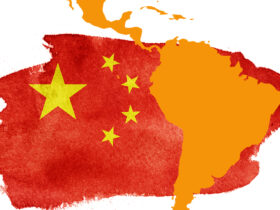
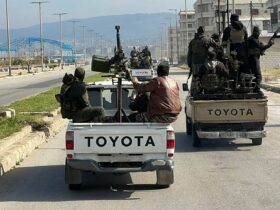
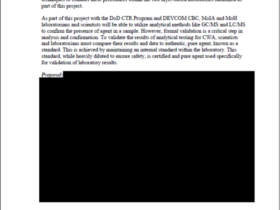
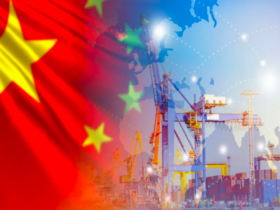

Leave a Reply